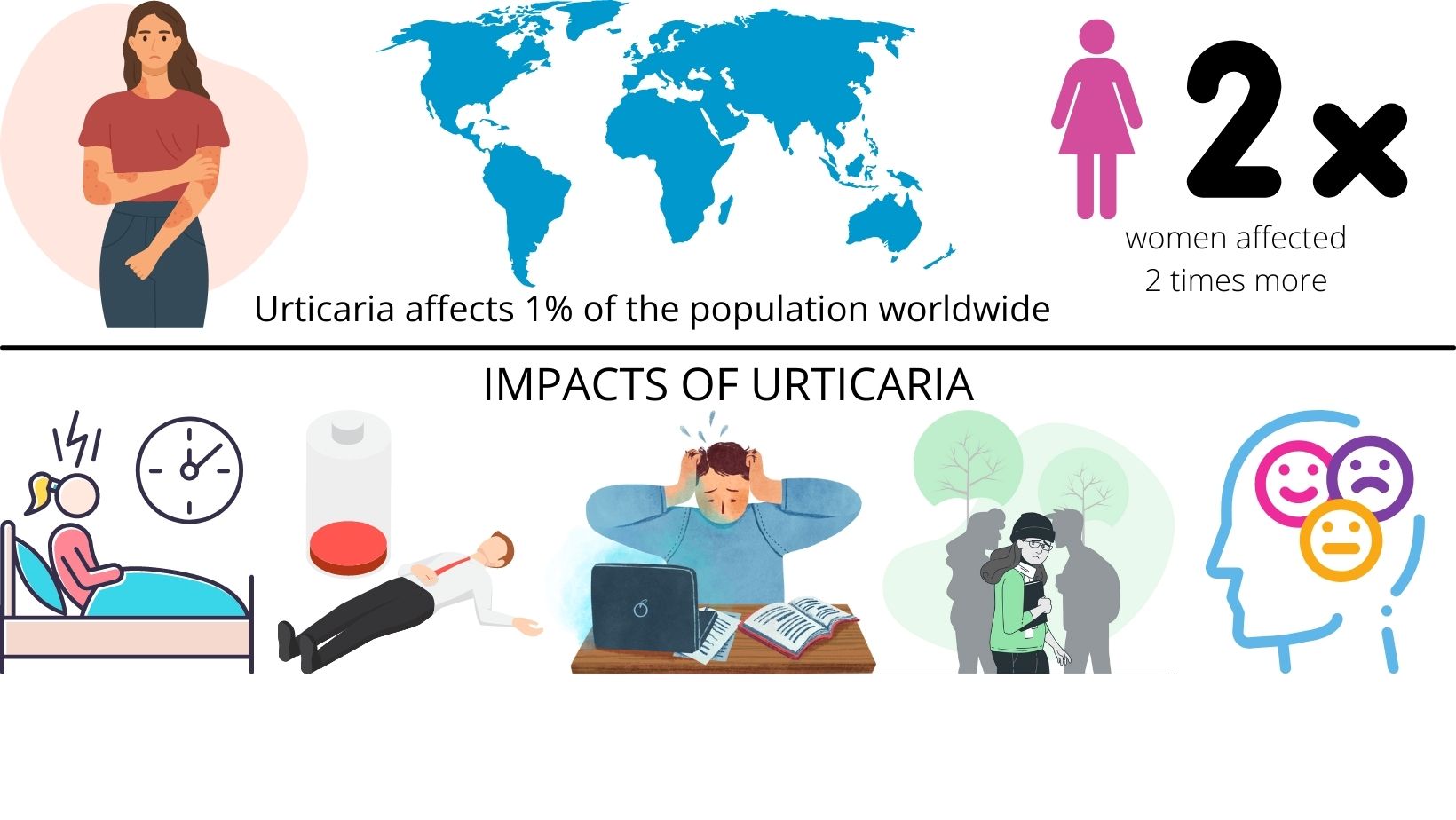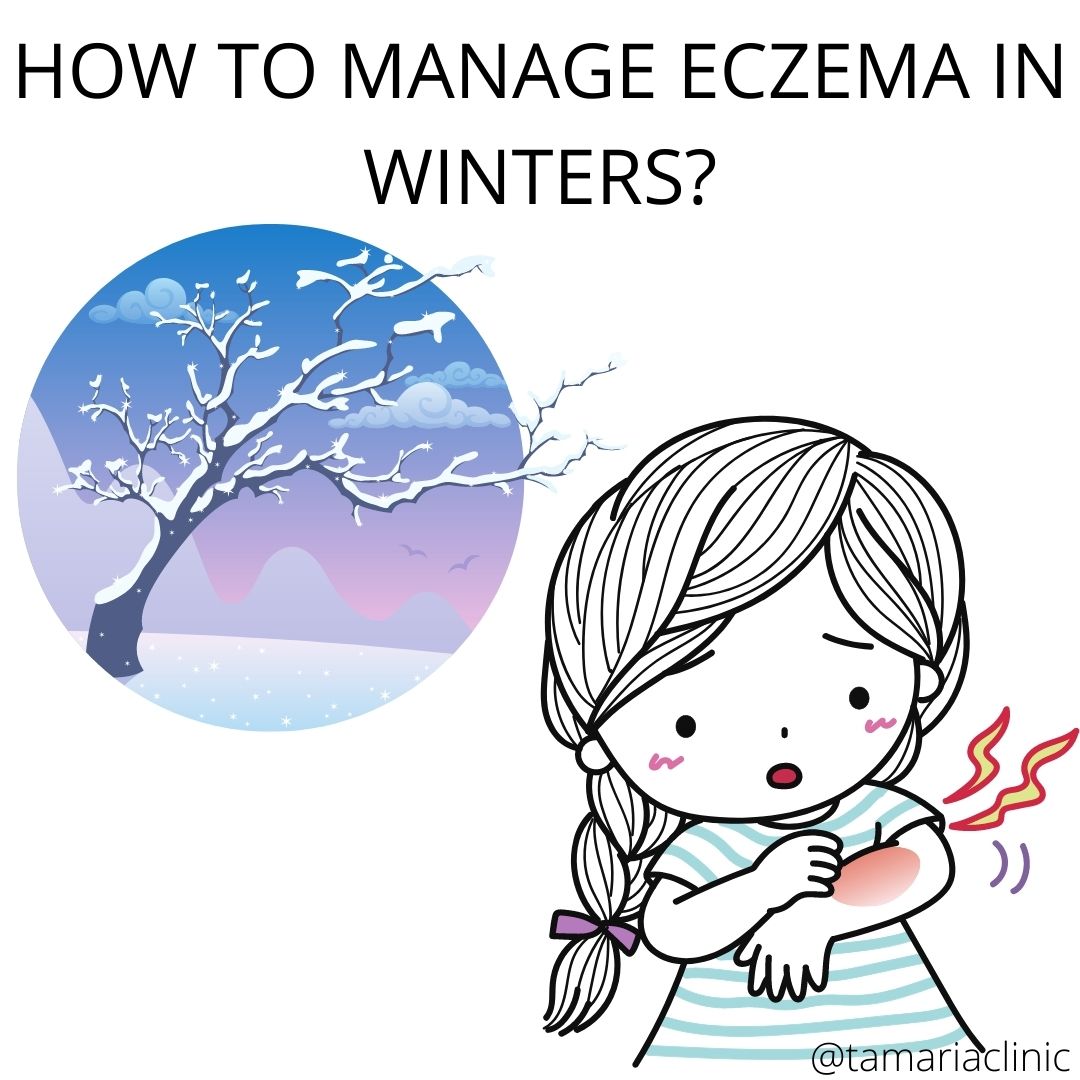THE DEFINITIVE GUIDE FOR THE TREATMENT OF URTICARIA
 WHAT IS URTICARIA?
WHAT IS URTICARIA?
Urticaria is a vascular reaction of the skin affecting the dermis and epidermis layer of the skin characterized by weals(hives) or angioedema (swelling) or both and appears as well-circumscribed raised areas of erythema and edema with much itching.
Urticaria may be acute (< 6 weeks duration, often gone within hours to days) or chronic (> 6 weeks duration, with daily or episodic weals).
Urticaria usually occurs following an infection or as a result of an allergic reaction to any medicine, insect bite, food. Other triggering factors for urticaria include stress, cold temperature, hay fever, asthma, heat, perspiration, scratching, etc. Sometimes there is no noticeable triggering factor seen.
WHAT ARE THE SYMPTOMS OF URTICARIA?
- WEAL
- REDNESS
- ITCHING
- BURNING
- SWELLING
WHAT ARE THE CAUSES OF URTICARIA?
- Weals are due to the release of chemical mediators which activate sensory nerves and leakage of fluid in surrounding tissues. Allergy IgE mediated also causes urticaria.
- The cause for various kinds of urticaria depends on the type of urticaria. For example- Certain medicines like aspirin, ibuprofen, penicillin, etc may cause an allergic reaction in the body and may induce urticaria.
Certain food items like seafood, certain dry fruits, nuts, eggs, cereals may also trigger urticaria. - Scratching and striking on the skin may also trigger urticaria in individuals affected with dermatographism. Some may have urticaria after slapping also.
- Some may develop urticaria after sustained pressure on certain areas where there is pressure for a long time. For example at the waistline.
- Cholinergic urticaria may be seen during sweating, exercise, hot environment, emotional stress.
- When the skin is exposed to extremes of cold temperature then also urticaria may be seen.
- Solar urticaria is seen in exposed parts of the body on exposure to the sun.
DIAGNOSIS OF URTICARIA
Allergy tests may help in getting the cause of the urticaria but not in every case.
Appropriate clinic history with symptoms helps in the diagnosis of urticaria.
TREATMENT OF URTICARIA
Anti-allergic drugs are usually given to suppress the urticaria along with steroids which have side effects of their own.
MANAGEMENT OF URTICARIA
- Avoidance of the triggering factors is advisable.
- The patient is advised not to scratch the weals.
- Homeopathic medicine should be given which would help in permanent relief of the symptoms without any side effects.
HOMEOPATHIC MANAGEMENT OF URTICARIA
Homeopathy has great results in the treatment of urticaria. Medicines like apis, sulphur, natrum mur, urtica urens, etc are a few medicines that are effective in the treatment of urticaria depending on symptom similarity of the patient and the medicine.
DO’S AND DON’TS
DO’S
- Avoid the triggers.
- Do not eat the food items you might be allergic to.
- Avoid too much exposure to the sun.
- Avoid tight clothing.
- Do not take medicines without consulting a registered doctor.
- keep yourself hydrated.
DON’TS
- Don't scratch the weals.
- Do not consume alcohol.


Comments
We have received your comment , Thank You !